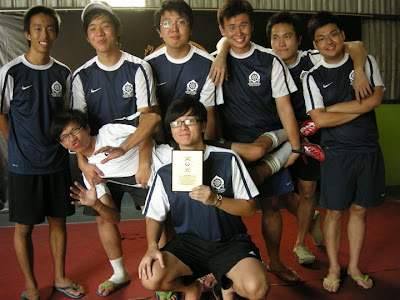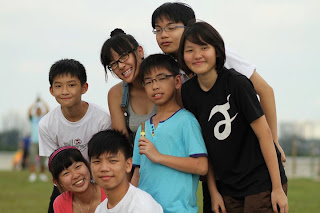by Piya Tan
Words are drugs, surely for those who totally rely on them. The letter kills, it kills especially those who define life and truth by it. For wood, hammer, nails and tools alone do not furniture make, but by the hands and heart of a carpenter. Even “carpenter” is just a word; for, a carpenter is what a carpenter does.
The religion of words can only hallucinate us with a false certainty that we, and often we alone, understand them, and we want others, too, to believe us in the exact same way. This is called dogma, a near-synonym for a fear of the real truth.
You don’t need to take drugs to hallucinate: (as we say in Singapore) blur thinking, blur info, blur friends -- and those who claim to know God and speak for him -- can do worse.
For words are sounds our bodies make, and such sounds rarely reflect what is really in our hearts. For sometimes we think we know, sometimes we want to move or manipulate others, sometimes we lack the courage to say the truth, sometimes we are simply ignorant. Often enough, good literature give us more useful truths than religious books, and if literary works (novels, stories, poems, etc) more than just entertain, they might even move us spiritually to become better people.
One of the problems with literature, however, is that there are simply too many books and school examinations, but each religion only has, as a rule, a single scripture, which is easier to work with, if we have the freedom and wisdom to do so.
Yet, whatever that is good or great that a religion tries to say, literature can say it better, more beautifully, and without a selfish agenda. This is a rationale for the study of religious texts as literature.
Most of us, however, know that religion is not about literary appreciation. Good religious teachings can change our lives for the better. But the best religious teachings, because of its liberating nature, cannot be expressed in words. It would not make sense, just as all talk about music is not music at all. We need to listen to the music and feel it. And we need to be really silent to fully enjoy good music.
The Buddha’s teachings begin with words because they are the basic communication tool for us. But as we have noted, this is like talking about music. We may have some idea about the teachings, but the beauty and truth are still not fully felt.
We need to climb this ladder of words that we call Buddhism, and to rise above the limits of our senses, as it were, to directly see the Buddha Word with the inner eye. Wittgenstein (one of the greatest philosophers of our times) puts is quite aptly philosophically:
“My propositions are elucidatory in this way: he who understands me finally recognizes them as senseless, when he has climbed out through them, on them, over them. (He must so to speak throw away the ladder, after he has climbed up on it.)”[1]
We are reminded of the Buddha’s remark that the Dharma is like a raft, to be used to cross the waters of suffering, and then, on reaching the far shore, to be discarded. We need to discard the raft of words and religion, to be truly free.
However, if we are still on this bank, we are only fooling ourselves if we think that we can rid of the raft right away. We have not even built it yet, much less sit on it, paddling with all our limbs to cross the waters. We are still addicted to the drug of words, drowning ourselves in a sea of views. The internet and handphone are only making us better at it.
When we finally tire of spewing the lava of words and clouding our minds with the volcanic dust of opinions, in our dormant moments, we might just taste a sweet silence. It might be the stillness of a beautiful place, or the bliss of a happy memory, or simply the peace of our breath.
And if we allow ourselves, we might just open the breath-door into the realm of wordlessness and unsaying. Our physical senses are useless and unnecessary here. Only our hearts live here. We begin to gently fall through the silent spaces in between our breaths, as it were, into a timeless space, where there is no here nor there, no coming nor going, no self nor other, no words. Only true joy, true peace.
Revisioning Buddhism 32
[an occasional re-look at the Buddha’s Example and Teachings]
Copyright by Piya Tan ©2011 110104
 A beautiful film on the theme of self-redemption, sprinkled with Buddhist philosophy and morality. A cliche theme in movies, but Shaolin still stands out, mostly because it is a rarity for a well-choreographed action film to be successfully balanced with a gripping story. There were some sniffs around the audience, and I reckon because of the presence of Andy Lau, who gave a convincing portrayal of a vicious warlord turn self-sacrificial monk, a la Angulimala in Budhist literature. A reminder that the latter makes for a perfect film material. Rare to see local movie reviewers coming into consensus to give Shaolin at least a 4 stars rating. It has been a long time since a Hong Kong film created waves.
A beautiful film on the theme of self-redemption, sprinkled with Buddhist philosophy and morality. A cliche theme in movies, but Shaolin still stands out, mostly because it is a rarity for a well-choreographed action film to be successfully balanced with a gripping story. There were some sniffs around the audience, and I reckon because of the presence of Andy Lau, who gave a convincing portrayal of a vicious warlord turn self-sacrificial monk, a la Angulimala in Budhist literature. A reminder that the latter makes for a perfect film material. Rare to see local movie reviewers coming into consensus to give Shaolin at least a 4 stars rating. It has been a long time since a Hong Kong film created waves.






























